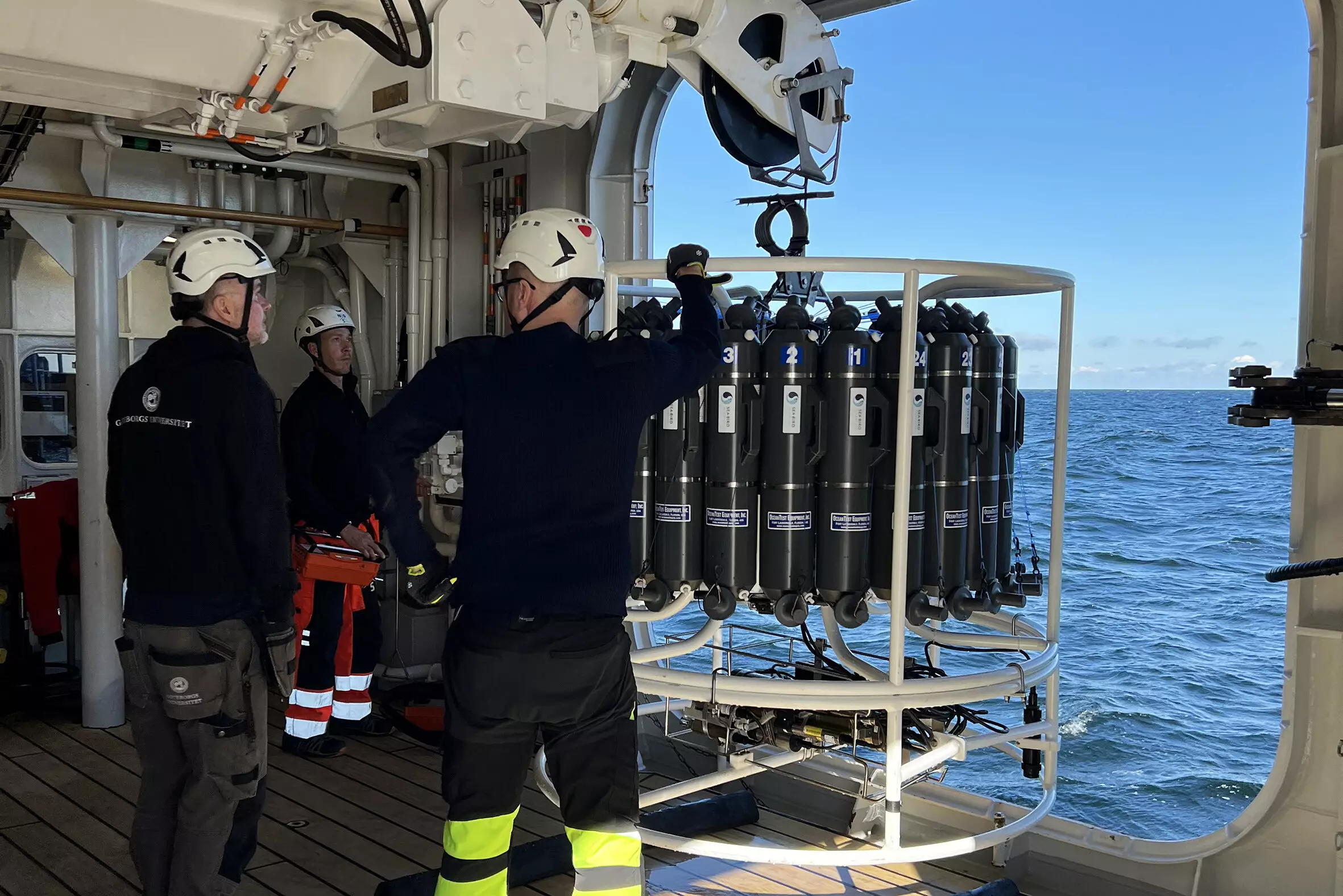The explosion of the Nord Stream gas pipeline in the southern Baltic Sea resulted in one of the largest unnatural methane gas emissions ever recorded. Researchers from the University of Gothenburg conducted measurements to assess the impact of the incident on the marine environment. Contrary to expectations, a significant amount of the methane released remained dissolved in the water rather than reaching the surface.
According to a study published in Scientific Reports, between 10,000 and 50,000 tons of methane from the pipeline stayed in the sea in dissolved form. The methane was dispersed over wide areas and underwent dissolution in the water, where some of it was consumed by bacteria. The researchers were able to differentiate between the methane from the leak and the naturally occurring methane in the water by analyzing the isotopic composition of the gas.
Despite the rapid and substantial release of methane from the pipeline, there was minimal mixing observed in the water masses due to the stable stratification of the sea. This stability was maintained by the differences in temperature and salinity of the water layers. The leaked methane exhibited significant variation in levels within the water, indicating limited dispersion at the time of the incident.
The researchers are uncertain about the long-term consequences of the increased methane levels on marine life in the southern Baltic Sea. An expedition that included plankton sampling in the affected area revealed ongoing high bacterial activity, but the full extent of the impact on phytoplankton and zooplankton remains unknown. Continued monitoring and analysis are required to assess the ecological repercussions of the gas pipeline explosion.
A return visit to the area three months after the initial expedition was conducted to gather additional data. Preliminary results indicated a period of heightened bacterial activity in the region. Further investigations are necessary to determine the overall resilience and recovery of the marine ecosystem following the methane release.
The Nord Stream gas pipeline explosion in the southern Baltic Sea had significant implications for methane concentrations in the water. While a substantial amount of the gas remained dissolved in the sea, the long-term effects on marine organisms are yet to be fully understood. The incident underscores the importance of monitoring and research to assess the environmental impact of such events and inform future preventive measures.


Leave a Reply